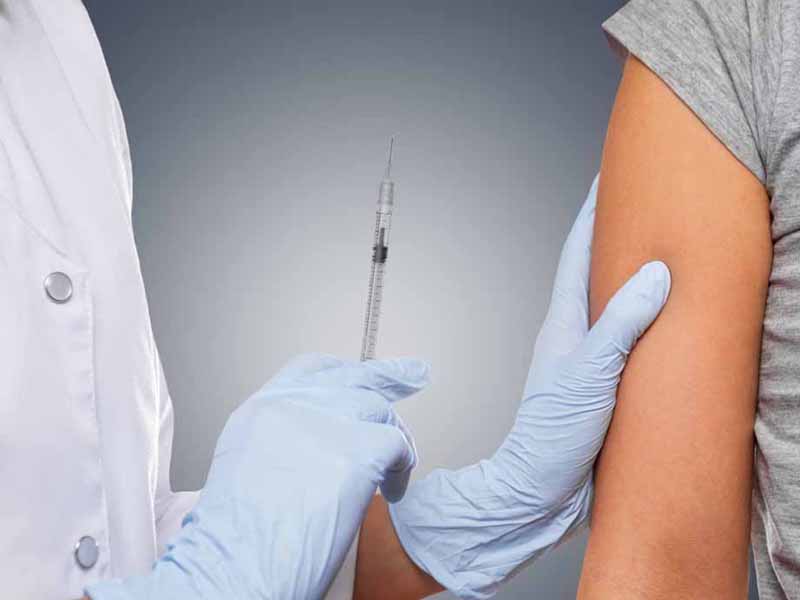CDC, AAFP Release 2019 Immunization Schedules
Updates Include Changes for LAIV, Hep A Vaccine
February 11, 2019, 02:46 pm Chris Crawford – The CDC and its Advisory Committee on Immunization Practices (ACIP), together with the AAFP and other medical professional organizations, have released the 2019 adult and childhood immunization schedules.
AAFP liaison to the ACIP Pamela Rockwell, D.O., of Ann Arbor, Mich., told AAFP News that changes to the adult and child/adolescent schedules include the addition of a cover page with instructions/guidance on using each schedule, as well as harmonization of the look of the two schedules.
Vaccine footnotes are now called "notes," which the ACIP urges family physicians and other clinicians to read to optimize their ability to recommend appropriate vaccines, Rockwell said. Notes in both schedules have been harmonized and are presented in alphabetical order, and the font used to display them has been enlarged. Several tables were updated, as well.
Additionally, as Rockwell told AAFP News after the October 2018 ACIP meeting, for better readability, fewer vaccines and health conditions are included in each table.

In the childhood schedule, the ACIP updated the notes for hepatitis A (Hep A); hepatitis B (Hep B); polio; measles, mumps and rubella (MMR); meningococcal; and tetanus, diphtheria and acellular pertussis vaccines.
In the adult schedule, the group decided to make indications clearer by reducing the number of colors used, Rockwell said.
Story Highlights
In both schedules, the ACIP updated the influenza vaccine notes to include use of MedImmune's live attenuated influenza vaccine (LAIV; FluMist), as was decided during the ACIP's February 2018 meeting, when committee members voted to include LAIV in guidance for the 2018-19 influenza season.
The ACIP also updated each schedule to add homelessness as an indication for routine Hep A vaccination in people age 1 year and older, as the committee decided during its October 2018 meeting. Homelessness was found to be independently associated with two to three times higher odds of infection with Hep A and a two- to threefold greater chance of severe outcomes from the disease, such as hospitalization or death, Rockwell said.
In addition, each schedule's Hep B section was updated to include information on using CpG-adjuvanted Hep B vaccine.
It's also important to note, said Rockwell, that language has been removed from the schedules regarding use of MMR in the setting of a mumps outbreak. The same goes for using quadrivalent meningococcal conjugate (MenACWY-D; Menactra, Menveo) and serogroup B meningococcal (Men B) vaccines in the setting of a meningococcal disease outbreak. Health care professionals are now directed to look to their local health departments for guidance on vaccination during an outbreak.
The meningococcal work group will present the latest data and a Grading of Recommendations, Assessment, Development and Evaluation report at this month's ACIP meeting on booster doses of the Men B vaccine for patients 10 years and older who are at increased risk for meningococcal disease.
Finally, as a reminder that the MMR vaccine is key to protecting particularly vulnerable patient populations, including infants, pregnant women and those who are immunosuppressed, Rockwell pointed out that the current measles outbreak in Clark County, Washington, could have been prevented if those affected had been vaccinated.
"Measles is a highly contagious, vaccine-preventable viral disease that spreads easily through the air and through touching infected surfaces and contact with one's eyes, nose or mouth," she said. "Measles virus can live up to two hours in an airspace where an infected person coughed or sneezed, and 90 percent of nonimmune persons walking into that room will become infected.
"Measles vaccination is the best defense against contracting the disease."
Related AAFP News Coverage
CDC Launches Vaccinating Children Video Series
(1/23/2019)
ACIP Reaffirms LAIV Recommendation for 2018-19 Flu Season
Group Creates Guidelines for Anthrax Vaccine Use
(6/27/2018)